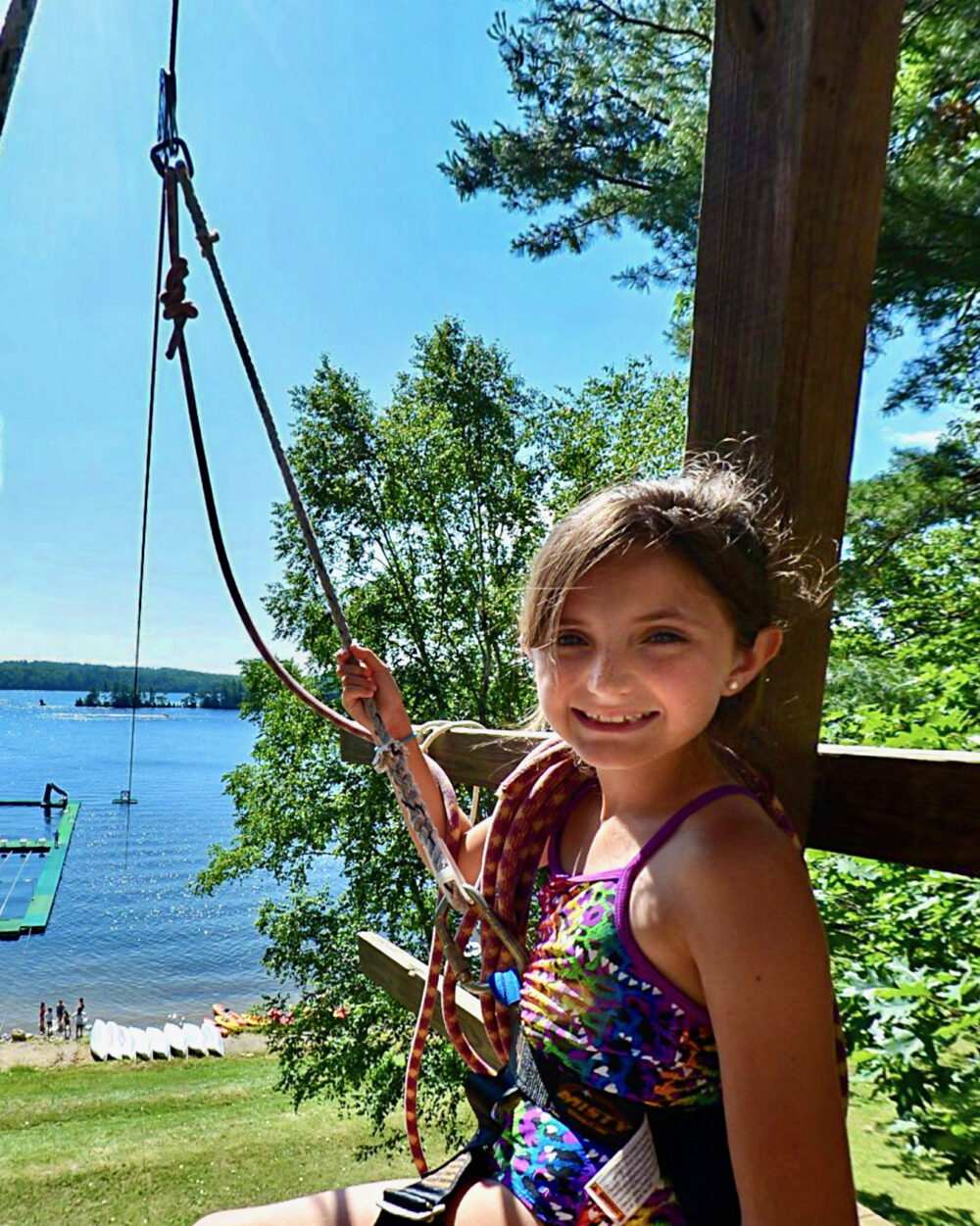How Camp Builds Resilience by Dr. Tracy
For all camp parents, including us who also happen to be camp directors, it can be gut-wrenching at times to be away from our children while they’re at camp. So why do we do it?! We’re excited to share the first of a series of blog posts by Dr. Tracy Brenner, a psychologist, Maine camp alumna and soon to be Maine camp parent herself. She partnered this Fall with the Maine Camp Experience, a community of premier Maine camps, of which Vega is a proud member. Over her blog series for MCE, Dr. Tracy will share tools, tips and strategies to help you and your children prepare emotionally to have a successful summer.
Hi MCE! Yes, I was a camper … and one who was quite homesick during her first summer. Yet even with those tearful moments of missing home and trips to the infirmary with “stomach aches,” I loved camp. In some ways, that experience of having struggled through homesickness affirms why as a psychologist, I believe in camp. Let me explain.
We all send our children to camp with hopes of them having fun, making friends, being outside and getting off screens. I certainly hope my son’s experience checks those boxes this summer. But the developmental benefits of camp go far beyond making friends and having fun. Sleepaway camp provides a unique landscape for children to build independence, self esteem and, most of all, resilience. In order to become resilient—having the capacity to overcome or adapt to challenges—we need to have challenging experiences. With no obstacles or failure, we can’t become more resilient. And that’s what’s so great about camp: There are endless opportunities to be challenged each day. Your child will fall when trying to get up on one waterski, just miss reaching the top of the rock wall or strikeout in baseball. But when children respond to those failures by trying again, they build resilience.
Camps teach kids to do hard things. I’m sure we all hope our kids come out of the summer with a new skill or two, but I think the most important ones they’ll develop relate to emotions. Children will miss home, there may be conflict with friends and they may be disappointed when they don’t get the part they wanted in the play. While these disappointments sting, they are also opportunities for building emotional resilience and distress tolerance (or our ability to sit with discomfort). At camp, children will learn to sit with big feelings, they will independently seek out other people for support, they will learn that they can have a hard moment and still have fun at the same time. Children will learn that they can cope, and they can cope without a parent there to rescue them from their discomfort. When kids can internalize that they managed something on their own, without needing a parent to rescue them, it’s a major boost for self esteem.
Trust me, I’m about to be a camp parent and I can only imagine how gut-wrenching it will be to get my son’s homesick letters and not be able to just give him a hug. What I will remind myself in those moments is that he is at camp, and while there, he will certainly experience a full range of feelings. (Who has ever been happy for two, four or seven weeks straight?) And just as swimming across the lake would present a challenge, so will missing home. So in these moments, I will remind myself that I trust the camp to take care of him and I will work to reframe his sadness as an opportunity for emotional resilience.
But, wait! Much like I wouldn’t just send my child to swim across the lake before he has ever been in the water, I won’t send him to camp without helping him prepare to handle big feelings. So, MCE parents, I’m with you! Over my series of blog posts I will offer tools, tips and strategies to help you and your children prepare emotionally to have a successful summer. Together, we can help our campers thrive at camp.
About Dr. Tracy Brenner: Dr. Tracy Brenner received her doctorate in Clinical & School Psychology from Yeshiva University’s Ferkauf Graduate School of Psychology at the Albert Einstein College of Medicine. She completed a post-doctoral fellowship at St. Luke’s-Roosevelt hospital in NYC. Dr. Tracy launched her professional career as the high school psychologist at The Churchill School and Center, an independent school in New York City. At Churchill she counseled students, provided support for parents, collaborated with teachers and administrators, and gave presentations on a variety of mental health topics. Dr. Tracy is currently in private practice in New York and Connecticut, providing individual therapy to adolescents and adults as well as parenting support.





